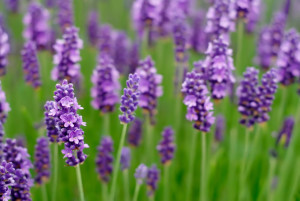1. Home Protection:
Having a clean kitchen won’t make your home completely immune to infestations. Many insects and rodents are attracted to food, but open bags of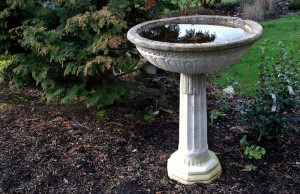 chips and dirty dishes on the counter aren’t the only things they are after. Water plays a big role in the attraction of pests. By leaving sources of water around the home or having areas where water may pool can attract pests. We recommend keeping your gutters unclogged and making sure that downspouts direct water at least 3 to 4 feet away from your home’s foundation. Additionally, decorative pools and baths should be drained regularly.
chips and dirty dishes on the counter aren’t the only things they are after. Water plays a big role in the attraction of pests. By leaving sources of water around the home or having areas where water may pool can attract pests. We recommend keeping your gutters unclogged and making sure that downspouts direct water at least 3 to 4 feet away from your home’s foundation. Additionally, decorative pools and baths should be drained regularly.
2. Hygiene:
There’s not much you can do to keep certain bugs away. People tend to think that maintaining good hygiene will prevent them from getting bed bugs. That’s not true. Unlike most other insects, bedbugs aren’t after food or moisture, they just want to drink your blood. These bugs get into your home on bags, clothing, or furniture so we recommend being vigilant about examining items before bringing them inside. Unpack suitcases in the garage and don’t buy old stuffed animals because those can make perfect vehicles for bedbugs to end up in your house.
3. Good Bugs:
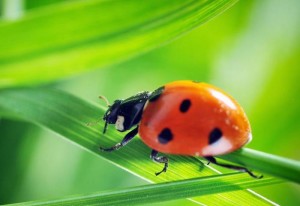 Not all pests are bad. Unlike termites, who cause up to $5 billion worth of damage to people’s homes per year, or cockroaches, who can cause asthma, not every bug is cause for worry. For example, ladybugs help gardeners by eating bad pests, such as plant-annihilating aphids. For more on which bugs are good to have around your home, read our blog post entitled “Beneficial Bugs For Your Lawn”. We highlight a few of the good bugs you want around and how to attract them.
Not all pests are bad. Unlike termites, who cause up to $5 billion worth of damage to people’s homes per year, or cockroaches, who can cause asthma, not every bug is cause for worry. For example, ladybugs help gardeners by eating bad pests, such as plant-annihilating aphids. For more on which bugs are good to have around your home, read our blog post entitled “Beneficial Bugs For Your Lawn”. We highlight a few of the good bugs you want around and how to attract them.
Choosing the right plants to manage pests are a great idea. There are some plants that repel certain bugs, reducing the need for pesticides in your yard. For example, the common cooking spice, basil, repels house flies and mosquitoes. Lavender repels moths, fleas, flies and mosquitoes. Planting these bug resistant plants around your home can reduce the common pests and put your mind at ease with less need for pesticides.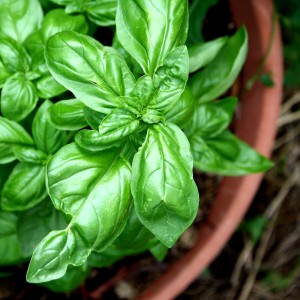
5. Natural Means:
Finally, many use the common store bought anti-bug sprays filled with DEET, an unnatural, unhealthy chemical that has been linked to memory loss, headaches, and is especially toxic to children. To avoid this strong chemical but still keep the bugs away, there are two items that are quite useful: lavender and garlic. As said above, lavender can be planted to keep the bugs away but 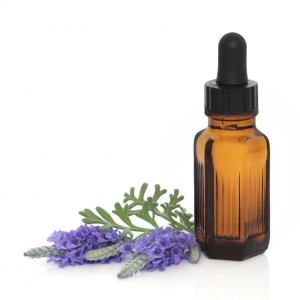 lavender in liquid form is also effective. Applying it to open windows, skin, or places in the yard where the mosquitoes are thriving will naturally drive them away. Putting fresh lavender on the grill has also been shown to repel them. Now to garlic. It may sound strange, but garlic acts as a natural buffer between humans and mosquitoes because of its strange smell. But the catch with smelling like garlic is that other humans may be repelled from you as well!
lavender in liquid form is also effective. Applying it to open windows, skin, or places in the yard where the mosquitoes are thriving will naturally drive them away. Putting fresh lavender on the grill has also been shown to repel them. Now to garlic. It may sound strange, but garlic acts as a natural buffer between humans and mosquitoes because of its strange smell. But the catch with smelling like garlic is that other humans may be repelled from you as well!
I hope you enjoyed these tips! DIY options such as these may not fend all of the pests away, so if you have a pest infestation that you can not control, do not hesitate to call ProActive Pest Management at (630) 451-8101 for a free quote!

